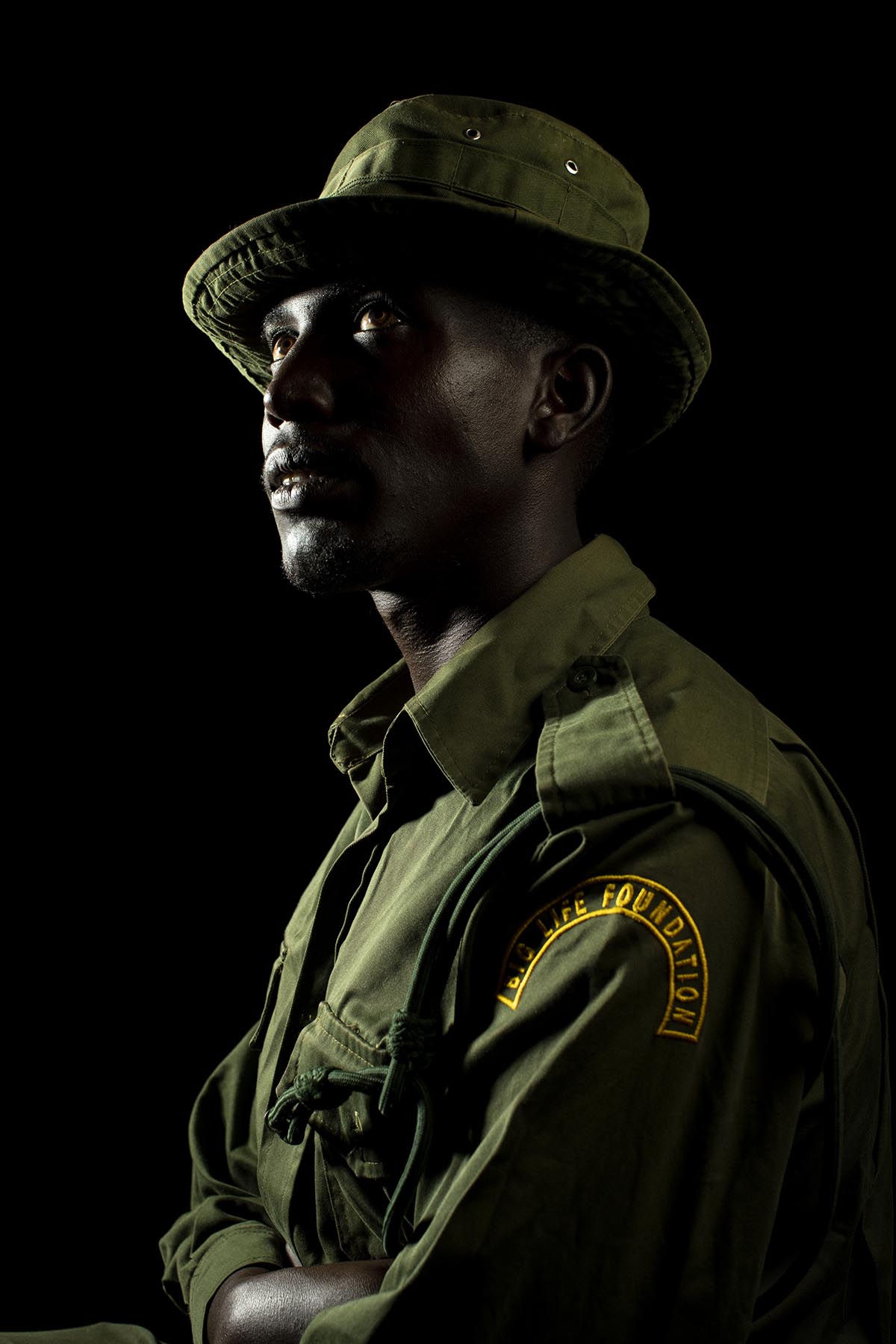
Tarayia Manja
Age: 35
Home: Kimana
Rank/Position: Sergeant
Team: Kimana Sanctuary
When did you start working for Big Life? 2007
How did your journey as a ranger begin? I first started out as a community informant, giving ranger teams information on incidences taking place, and after a while, I was recruited to become a ranger.
What does your job as a sergeant involve? I am in charge of an outpost with eight rangers, including Big Life’s female rangers. I plan the team’s daily operation activities and respond to any issue that may need attention among my team.
How has the experience of working with female rangers been? At first, I was unsure of what to expect and how to work with them. My corporal, who is my second-in-command, is a female ranger and she has been very helpful in managing the team and handling some of the areas that she has more expertise on. I have come to realize that they are equal to their male counterparts and we share duties regardless of their gender.
How has your experience been working as a ranger for Big Life? I have been fortunate to work in different sections in Big Life’s area of operation. But the most memorable has been working in anti-poaching operations and human-elephant conflict operations that involve problematic animal control.
When elephants raid community farms, we are called to assist with driving them out towards the conservancies or protected areas. This is very dangerous since it’s at night, and most times farmer emotions are very high and so controlling such a situation is very hard. The noise and commotion sometimes irritate the elephants and they can charge at us. With so many people involved, it increases the risk of things becoming worse.
I have been fortunate to have been trained by Big Life in the use of a firearm. In anti-poaching operations, I am highly skilled in the laying of ambushes to catch poachers and my firearm also comes in handy to ensure the safety of my team, and at times to disorient armed poachers who try to put up a fight.
What challenges do you face in your line of work? One cannot succeed as a ranger without passion or sacrifice, because our job is very demanding. Sometimes my team conducts daytime foot patrols and night patrols at night, so it takes determination to answer the call of duty each time you are called upon.
Not many rangers are armed, and sometimes I am torn between responding to anti-poaching operations or responding to human-elephant conflict. This becomes challenging because my presence can turn a bad situation better and my fellow rangers feel safer as they face myriad situations.
How have you benefitted from working as a ranger? I am a father to a house hold of five, and this job has secured their daily upkeep and provided them with access to education and a better quality of life. Additionally, working with female rangers has opened up my once limited world view on the potential of women and I can now without a doubt believe in the ability of my daughters to transform their lives and provide for themselves.
Photo: Bobby Neptune
Big Life rangers face extremely difficult challenges on a daily basis, which have only increased amidst a global pandemic. Keeping our rangers properly funded to continue their vital work in the field is more important than ever for the future of the wildlife, wild lands, and people of East Africa. Please consider a monthly contribution to our Ranger Club to support these dedicated rangers. Any amount helps! And for those that sign up in July, or increase your existing Ranger Club membership amount, you will be entered to win a gift featuring Big Life-branded merchandise.
